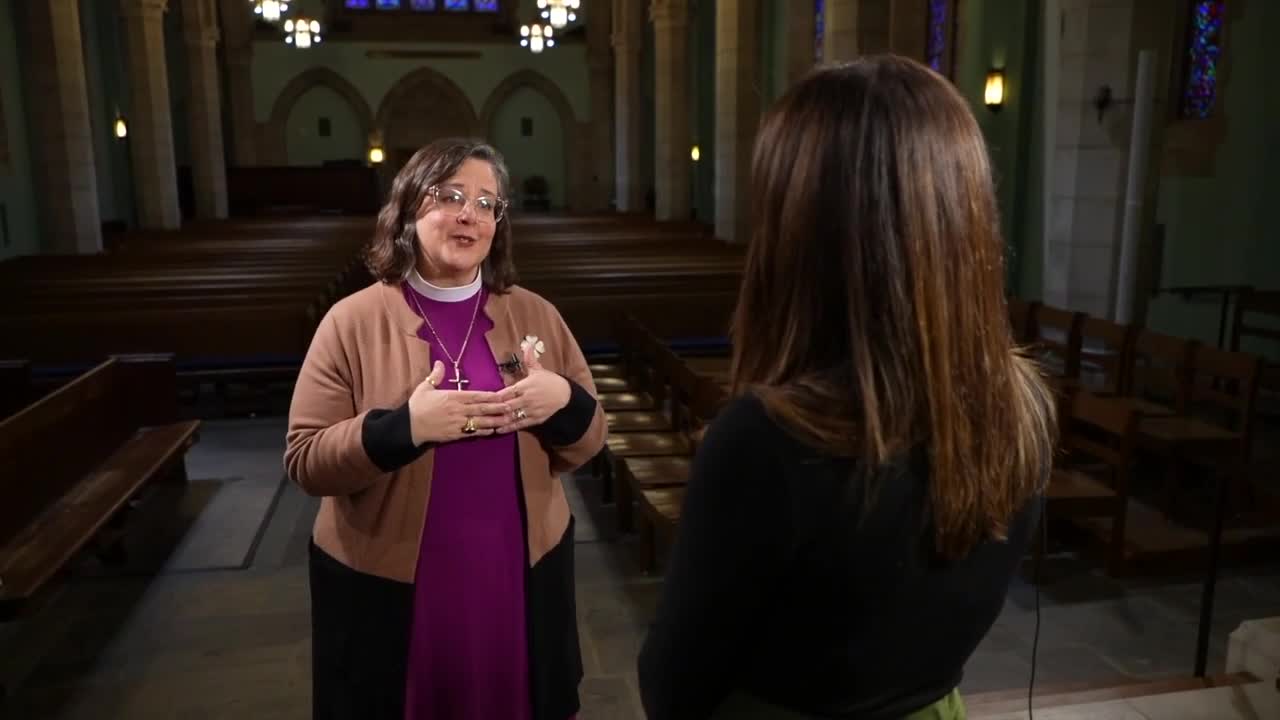BALTIMORE — The holidays bring out the generous spirit in many people, but scammers are exploiting that goodwill by impersonating religious leaders to steal money through fraudulent donation requests.
Bishop Carrie Schofield-Broadbent of The Episcopal Diocese of Maryland recently discovered someone was using her name to trick members of her congregation into buying gift cards. The scammer successfully stole $1,400 from one victim who believed they were helping their bishop surprise staff members with gifts.
"I was made aware that someone was impersonating me through email and one of the people in our orbit got tricked," Schofield-Broadbent said.
The scam follows a predictable pattern. The fraudster sends an email that appears to come from a trusted religious leader, asking for help with a seemingly innocent request.
"The email kind of started off with a little like, 'Hey, do you have a minute to help me?' And then when the person responded, it gave a little bit more information. 'I'd like to give gift cards to my staff, but I want it to be a secret. I want to surprise them.' And I believe the ask was gift cards in the amount of $200 like 7 of them, for a very specific retail store," Schofield-Broadbent said.
Victims are then instructed to purchase the gift cards and send photos of the card numbers and PINs to the imposter, giving scammers immediate access to the funds.
The deception works because the email display name appears legitimate, however, clicking on the actual email address often reveals it's not from an official church account.
"The name that popped up on the screen looked correct, so someone would have had to click on the actual sending email and notice that it doesn't seem professional," Schofield-Broadbent said.
This type of fraud isn't new. The Federal Trade Commission warned about similar scams targeting worshipers several years ago. Multiple churches across the country have issued warnings about impersonators using identical tactics, including churches in Illinois and other Maryland congregations.
Religious communities make attractive targets for scammers because of their generous nature and strong bonds of trust.
"Churches are full of generous people who want to express gratitude, who want to help the poor and marginalized, and so if they believe that they have a captive audience of people who want to be generous and do the right thing, I can understand how this would seem like a strategic target, even though it does sadden me," Schofield-Broadbent said.
For those who have fallen victim to scams, the bishop offers compassion and perspective.
"Scams are like this because they work and what these scams engage are your heart and you went with your heart. You led with your heart instead of your head, and that's not always a mistake. It led us down a bad path this time. But it's an invitation to, I think, especially in these tricky moments, to be able to engage both our heart and our mind," Schofield-Broadbent said.
To protect against donation fraud, verify any personal requests by contacting the organization through official channels listed on their website. When making legitimate donations, use credit cards or checks. Resources like Charity Navigator and the BBB Wise Giving Alliance can help verify an organization's legitimacy and track record.
Be especially cautious of charities with names similar to well-known organizations. Confirm legitimacy through your state's charity registry and the IRS tax-exempt search tool.
This story was reported on-air by a journalist and has been converted to this platform with the assistance of AI. Our editorial team verifies all reporting on all platforms for fairness and accuracy.




